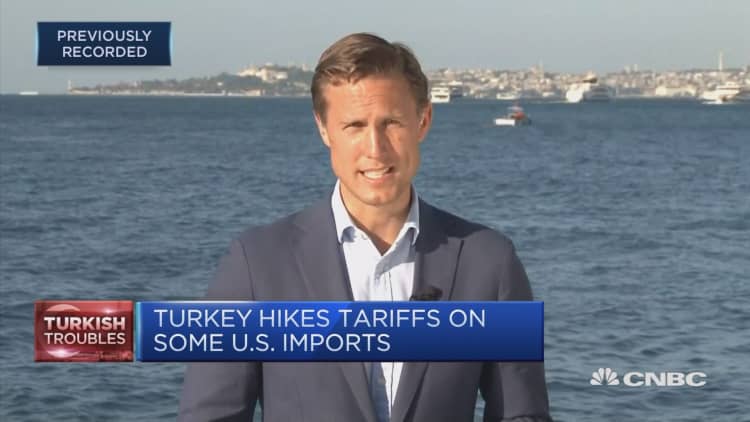
Action by Turkey's banking regulator has stymied investor ability to buy and short the lira, helping the currency to gain value in overnight trade.
The Banking Regulation and Supervision Agency (BRSA) has reduced the amount of swap market contracts that offshore banks can undertake, reducing their access to the beleaguered currency.
A swap is where on flow of cash income, usually a fixed or steady rate, is swapped for a typically riskier flow of income. The derivative contract is set for a fixed period.
The BRSA has stipulated that banks now cannot run swap contracts for no more than 25 percent of the equity that they hold. The figure was previously 50 percent.
BlueBay Asset Management strategist Timothy Ash said in a note Wednesday that Turkey's central bankers had finally taken action to restrict international access to lira.
"They are killing offshore TRY (lira) liquidity to stop foreigners shorting the lira," he said before adding "why did they not do all this much earlier?"
In reaction the lira jumped as much as 7.3 percent to 5.883 per dollar but has since lost value again and at around 5:40 a.m. eastern was sitting at 6.086 per dollar.
This year the dollar has gained more than 60 percent in value versus the lira, and the Turkish currency has become the world's worst performer this year.
The run on Turkish currency rout has affected the country's bond market. The yield on 10-year sovereign debt has risen near to 20 percent, making it much more expensive for the Ankara government to borrow.
Overnight Turkey announced increased tariffs on U.S. products, raising duties on American alcohol to 140 percent, autos to 120 percent and tobacco to 60 percent.
Tariffs were also doubled on cosmetics, rice and coal.


